#marvelfilm
Text









Marvel’s Wong from Marvel's Legends
This is good value for a figure. The clothing has details like embossing on the tunic, the different colours and bracelet on his left hand. It comes with a spare right hand that can hold a supplied sword (which even has details on the handle). There’s a good facial likeness of the actor Benedict Wong. Another two pairs of hands are used for magic effects. Definitely worth getting for a Marvel magic and mystics collection.
#wong#sorcerer#sorcerersuprime#benedictwong#drstrange#marvelfilm#multiverseofmadness#wizard#mystic#marvellegends#hasbro#hasbrotoys#marvel#comicbookactionfigures#marvelcharecters#marvelsuperheroes#marvelheroes#toyphotography#actionfigure#actionfigurephotos#actionfigurephotography#actionfigurephotographer#toyphoto#toypic#toyphotographer#actionfigures#toys#toycollector#toycommunity#actionfigurecommunity
0 notes
Photo





James Marsden as Scott Summers/Cyclops in the Fox X-Men Movies (Part 3: X-Men 2000 Wolverine meets the team and grabs Scott).
#scogan#cyclops#scott summers#james marsden#hugh jackman#logan#wolverine#james howlett#x-men#Charles Xavier#Patrick Stewart#filmgifs#xmenedit#marveledit#fyeahmarvel#fyeahmovies#marveldaily#moviegifs#cinematv#marvelfilms
317 notes
·
View notes
Text
i love it when shows look good and the colours are gorgeous....
3 notes
·
View notes
Text




Interstellar. (2022)
.
(Desliza/slide)
.
¡Hola! Mientras que subo material nuevo, os dejo un pequeño re-edit de esta foto que subí hace ya tres años. Supongo que la mayoría de la gente que me sigue, probablemente no la había visto.
-
Cómo no, un cubo de Rubik en una de mis fotos. Lo desmonté entero y coloqué las piezas en el set. Que igual no hacía falta pero en aquél entonces era inocente y chapucero, no como ahora, que solo soy chapucero 😹.
Me pareció una idea que podía ir bien con Dr.Strange, cuyos poderes son de sobra conocidos.
-
Os he añadido algunas fotos del BTS e incluso un clipsito para que veáis cómo estaba montado el set. ¿Qué os parece? ¡Feliz día!
#drstrange#benedictcumberbatch#marvelfigures#marvelfilms#shfiguartsphotography#shfiguartsphoto#tamashiinations#toyphotographer#toyphotagraphy#rubikscube#ernorubilk#algorithms#t
3 notes
·
View notes
Text
Analysis of: "If I Ran Marvel..." entertainment commentary/criticism by Dan Murrell
youtube
In the following text the term "document" refers to the subtitles of the video.
Summary of the discussion:
The genre of the document is entertainment commentary/criticism based on its informal, analytical tone and focus on the MCU.
It demonstrates strong knowledge of its subject matter and presents its critique in an engaging, well-structured manner.
The perspective presented is an idealistic, constructive vision from a passionate fan's perspective.
Some arguments could be strengthened by addressing counterarguments and alternative views more directly.
Implementing the proposals may benefit fans and creative talent most but risks short-term financial impacts.
Strategies like enforced rewatching or divorcing business from creativity have limitations and risks.
Moderate, balanced approaches that consider stakeholders and complexity may have higher chances of success.
The author's personality seems to be that of an creative, enthusiastic visionary focused on improvements.
Overall evaluations found reasoned arguments but also opportunities to qualify statements, address challenges, and strengthen logical reasoning and evidence.
Here is a summary of the document in bullet points:
The speaker is pretending to be Kevin Feige, head of Marvel Studios, and discussing what they would do if they were put in charge of Marvel
They would stop all current production except for projects already in late stages, and re-evaluate planned projects
Everyone at Marvel would rewatch all previous MCU movies to analyze what worked and didn't work
Future projects would go back to focusing on individual heroes and their stories before setting up larger crossovers
All ideas would be eligible for exploration without being ruled out due to past failures or other factors
Creative decisions would not be based on marketing or financial factors like release dates
Major characters like the Avengers would be given a break from team-up movies
New focus would be on rebooting properties like Fantastic Four, X-Men, and Spider-Man
The multiverse concept introduced in movies would be fully leveraged through one-off crossover projects
Budgets would match projects' actual needs rather than being excessively large by default
Reshoots would only be used to improve existing projects, not rewrite entire scripts late in production
Future plans would slowly be hinted at without being rigidly locked in
No more than 3 movies and 3 Disney+ shows would be released per year to avoid oversaturation
Based on the content and style of the document, I would classify its genre as entertainment commentary/criticism.
Some evidence that supports this:
The speaker is providing their perspective and commentary on Marvel Studios and the MCU, criticizing some past direction and offering suggested changes.
It has an informal and conversational tone, but analyzes creative decisions and business strategies in detail like a film critique might.
It references specific movies, shows, characters and storylines from the MCU to support points, demonstrating knowledge of the material being discussed.
The purpose seems to be entertainment and starting a discussion about Marvel, rather than strictly informative like a work of journalism might be.
It is posted on a YouTube channel focused on movie reviews and commentary, suggesting this genre of entertainment commentary.
The style is presenting an imagined scenario ("What if I ran Marvel?") which invites critique and debate, rather than stating facts.
So in summary, while it touches on business and creative aspects, the primary genre is entertainment commentary/criticism - evaluating and opining on a popular media franchise from the perspective of a knowledgeable fan. The target audience seems to be other passionate MCU fans.
Based on the information and perspective presented in the document, here is an evaluation of the situation of the MCU:
Both critical and commercial success appear to be declining based on specific films and shows cited as disappointments. Data supports box office declines.
Fan enthusiasm may be drifting as well, supported by need to "rekindle passion" and make properties essential viewing again.
Overly relying on crossovers and large-scale team up movies risks repetition and dilution of character/story importance.
Quantity over quality with high output may be saturating the market and lowering demand. Movie theater struggles support this view.
Lack of strong singular hero/property focus risks characters becoming generic cogs in a machine vs compelling individuals.
Reshoot-heavy production implies some planning/writing flaws as creative process extends into costly post-production.
However, some high points still exist like Spiderman:NWH suggesting market potential remains if executed correctly.
Overall, while still a lucrative franchise, credible evidence suggests the MCU is facing serious challenges to sustained quality, audience appetite and cultural relevance if course is not corrected. The diagnosis seems a reasonably accurate portrayal of real issues potentially facing the shared universe model long term.
Here are some of the key stakeholders that could be affected by the proposals in this document and an evaluation of the impacts:
Marvel/Disney executives - Major changes proposed could impact business strategy and planning. Both risks and rewards discussed if creativity/quality improve.
MCU creative team (writers, directors, producers) - Freer creativity suggested but also pressure to meet loftier goals. Potential for burnout with tighter limits and "rewatch week".
MCU actors - Less steady work opportunities with fewer projects in production at once. But potentially more beloved/compelling roles.
Movie theater chains - Potential upside if proposed changes boost box office. But risks with fewer guaranteed tentpoles spread evenly year-round.
Marvel fans - Clear prioritization of fan experience/satisfaction. Proposals aim to rekindle passion and demand for future projects.
General moviegoing public - Broader relevance depends on commercial success of proposed changes appealing beyond hardcore fans.
Disney+ subscribers - Suggested emphasis on quality over quantity for streaming shows impacts service value proposition.
Overall, while challenging stakeholders like executives, the proposals generally seem aimed at prioritizing the sustainment of creative talent/passion and enhancing theater and audience experiences long-term. However, precise impacts would depend greatly on execution of ambitious vision discussed. Risks and rewards seem reasonably balanced across parties.
Here is an evaluation of the idea of everyone at Marvel rewatching all previous MCU movies:
Potential benefits:
Provides a holistic perspective on the entire narrative across films/shows that individual projects may lack in isolation.
Allows identification of broader tonal, character, and storytelling trends across the universe at a macro-level.
Encourages collaborative analysis and discussion that incorporates varied roles/viewpoints within the company.
May surface insights not apparent from single viewings or strictly relying on past analyses/reviews.
Potential limitations:
Time intensive process that could hamper ongoing work for creatives and executives with full schedules.
Subjective interpretations may vary significantly between individuals affecting consensus.
Earlier films may appear dated and be reevaluated through a modern lens rather than context of release.
Difficult to systematically catalog learnings in an actionable creative brief from such a marathon.
Risks of fatigue, diminishing returns on later rewatches in a binge format.
Overall, a rewatch endeavor could yield some dividends but may be challenging to implement effectively across a large company in a tangible way that directly guides future plans. A more targeted, facilitated analysis amongst key creative roles may prove more fruitful.
Here is an evaluation of the idea of creative decisions not being based on marketing or financial factors:
Potential benefits:
Allows creative vision/storytelling to take priority over commercial imperatives which could improve artistic quality.
Reduces risk of projects being rushed or altered purely to serve release date/marketing windows.
Gives filmmakers more freedom which may increase job satisfaction and ability to attract top talent.
Potential limitations:
Removes important business considerations that impact investment decisions and revenue/profitability.
Release schedule and marketing strategies are still major factors for audience awareness and box office potential.
May lead to disjointed long-term planning without any business oversight of creative output levels.
Difficult to execute fully given scale of MCU as a major commercial operation rather than solely an artistic endeavor.
Risk of ballooning budgets without fiscal responsibility or rationale for release timing/pacing.
Overall, striving for more balance between creative and commercial priorities rather than a total divorce from business realities may be a more pragmatic approach for a blockbuster franchise operation. Some coordination is likely still needed.
Here is an evaluation of leveraging the multiverse through one-off crossover projects:
Potential benefits:
Allows for fresh matchups and stories not possible in main continuity. Could excite fans.
Provides opportunities to utilize beloved characters in new contexts.
Lowers risk profile of each project since success is not essential to larger narrative.
Testing ground for ideas that could inform future plans if successful.
Potential limitations:
May dilute importance and impact of crossovers if overused in a non-essential format.
Risk of disjointedness or lacking synergies if not carefully coordinated long-term.
Securing rights agreements across studios/IPs adds complexities for partnerships.
Each project requires full development/production which strains resources if not managed carefully.
Demand uncertain without obvious connection to ongoing story or characters audiences follow regularly.
Overall, one-offs could work if used judiciously to build hype but Marvel's strengths have been longform storytelling. Leveraging the multiverse most effectively may require balance between self-contained projects and those driving a larger narrative. Strategic coordination would still be needed.
Here is an evaluation of the idea of limited reshoots only for improvement rather than rewriting:
Potential benefits:
Ensures scripts are thoroughly developed before filming begins, avoiding costly structural issues late in the process.
Promotes a properly planned, organized production cycle rather than rushing aspects.
Filmmakers and actors will be executing a cohesive vision developed during pre-production.
Budgets and schedules can be managed better without unpredictable late additions.
Potential limitations:
Allows less flexibility to course-correct major flaws discovered during post-production editing.
Risk that minor polishing reshoots still spiral into excessive workload if not tightly controlled.
Creative flexibility is limited even if some rewriting could genuinely strengthen a project.
May stifle innovation that occasionally occurs through non-linear creative processes.
Overall, striving for more thoroughly developed scripts makes sense, but a total ban on any rewriting could also hinder improvement in some cases. Clear guidelines and oversight would help strike a balance between structure and flexibility.
Here is an evaluation of releasing no more than 3 movies and 3 Disney+ shows per year:
Potential benefits:
Reduces risk of audience fatigue/loss of excitement from an overabundance of cross-promoted content.
Forces higher selective curation and spacing to boost desirability/hype of individual projects.
More development time may improve creative quality by avoiding strained pipelines.
Fewer concurrent productions means capacity for higher budgets on focused projects.
Potential limitations:
Revenue stream becomes less predictable with fewer guaranteed annual tentpoles/shows.
Talent/resources are not fully utilized if pipelines are intentionally kept under capacity.
Third-party platforms may see the MCU as less integral/impactful with reduced exclusive output.
Risk that some creatives will seek work elsewhere if opportunities are more limited.
Overall, moderation does seem prudent given quality concerns, but a total threshold may be overly restrictive and limit commercial upside if demand remains high. Flexibility based on monitored audience reactions could be balanced.
Here is an evaluation of who may profit and not profit from the ideas presented in the document:
Potentially profit:
Fans/general audience - With a renewed focus on quality storytelling and characters, engagement and enjoyment could increase.
Creative talent - Greater freedom and emphasis on original concepts may boost job satisfaction.
Marvel/Disney (long term) - Improved quality leading to enduring fan passion and box office could outweigh short term risks.
Potentially not profit:
Marvel/Disney (short term) - Fewer guaranteed tentpoles annually means less predictable revenue streams in transition.
Movie theaters - Loss of volume of assured blockbuster content could dampen box office until demand is reinvigorated.
Product/retail partners - Slower pace of new films/shows impacts merchandising and licensing opportunities.
Shareholders - Short term financial impacts from changes may not be welcomed on balance sheets.
Executives - Significant shifts in strategy open the company up to increased risks in an unstable period.
Overall, while creative talent and fans stand to benefit most, corporate stakeholders prefer stability. The proposal aims for long term profits but transitions inherently carry risks disrupting business as usual in the short term for those prioritizing predictable revenue. Quality improvements may eventually outweigh all costs if successfully executed.
Based on the content and style of the document, I would characterize the perspective it presents as:
Passionate fan perspective: The speaker clearly loves the MCU and wants it to succeed long-term, coming from a place of fandom rather than detached analysis.
Constructive criticism: While identifying flaws, the goal seems to be offering solutions to get Marvel back on track rather than just negativity.
Engaged viewer perspective: References experiences watching the movies/shows, critiquing them as an attentive audience member invested in the quality of storytelling.
Idealistic creative vision: The proposals imagine envisioning Marvel with unlimited resources/freedom, advocating for ambitious creative risks rather than just fiscal prudence.
Skepticism of current plans/direction: Implying recent strategy drift led to failures, wanting a return tobasics that made early movies so beloved.
Optimism for potential future: Tone is one of hope that Marvel can regain past glories with right leadership, not pronouncing the franchise doomed.
In summary, the perspective presented can be characterized as an engaged, passionate fan's idealistic creative vision for Marvel - criticizing respectfully from a place of love for the universe, rather than detached or antagonistic analysis. The goal seems to advocate constructively for maximizing future storytelling quality and audience enthusiasm.
Based on the style and content of the document, here is my analysis of the likely personality type of the author:
Idealist/visionary - They see possibilities and propose ambitious, big-picture changes to optimize long-term creative potential.
Passionate/enthusiastic - The author clearly loves Marvel deeply and wants the absolute best, evidenced by emotion and detail in critique.
Creative/innovative - Solutions demonstrate divergent, imaginative thinking beyond standard industry practices.
Persuasive/articulate - Able to synthesize vast knowledge and advocate coherently for their reformed vision.
Analytical/detail-oriented - Supports points by precisely referencing specific MCU elements and story decisions.
Constructive/solutions-focused - Goal seems to improve Marvel rather than just criticize; offers a path forward.
Leader/initiator type - Envisions self in top creative role making bold moves, not staying stationary.
Overall, these tendencies suggest a personality tending toward traits like extraversion, intuition, thinking and judging on the Myers-Briggs scale - someone energized by conceptualizing innovative improvements and advocating them persuasively to enact change. A visionary Idealist/ENTJ type best captures the apparent attributes.
Here is an evaluation of the quality of reasoning presented in the document:
Provides specific examples and evidence from past MCU works to support many claims about what has worked/not worked creatively. This gives arguments more factual basis.
Clearly lays out a full vision for reform with 12 numbered action items, giving it structural logic and comprehensive quality rather than vague assertions.
Qualifies some statements with reasonable caveats about flexibility and openness to new ideas, showing awareness of complexity.
Makes intuitive rationales for why proposed changes could have intended effects, like boosting demand through reduced output or focusing resources.
However, some arguments could be strengthened by addressing alternative views more directly or providing additional evidence from film/biz studies.
Limited acknowledgment of potential difficulties or unintended consequences of ambitious proposals being put into practice.
Reasoning is strongest when sticking to creative/storytelling aspects versus some industry/financial claims with unknown variables.
Overall, while passionately argued from a perspective of expertise, the quality of reasoning is good but could be improved by more directly grappling with counterarguments, acknowledging complexity, and providing broader evidence/data to support some conclusions presented as fact. The vision is cogently laid out but its practical feasibility relies on some logical leaps.
Here are some potential logical fallacies present in the document:
Argument from inconsistent premises: The author argues both for being less restricted by rigid future plans but also says Marvel should "call their shot" with 5-7 year game plans, which seems internally inconsistent.
Slippery slope: It argues reshoots have become overused creative crutch, implying this will inevitably lead to declining quality, without proving that logical step.
Anecdotal evidence: Cites one critic/audience-disliked film as proof reshoots don't work, without broader evidence this strategy won't ever succeed.
Hasty generalization: Suggests quality issues are due to overproduction while only citing specific recent movies as evidence without a larger sample.
Appeal to authority: Proposes having actors/filmmakers involved in "rewatch week" as if their subjective views would determine flaws/strengths objectively.
False dichotomy: Acting as if a creative vs marketing focus is an either/or choice when there may be balance or middle grounds.
Overgeneralization: Assumes fan dissatisfaction means the Multiverse hasn't been fully leveraged yet, when individual projects' quality and audience reception vary.
While providing impassioned perspective, the author's arguments could be strengthened by addressing some of these potential logical inconsistencies and gaps in evidence/reasoning. The perspectives advocated may ultimately be reasonable but aren't proven absolutely or exhaustively through the methods of logic and argumentation presented here.
Here is an evaluation of the document based on common criteria for entertainment commentary/criticism genre:
Knowledge/Expertise of Subject Matter: The speaker clearly has in-depth knowledge of the MCU movies, shows and storylines, demonstrating expertise in referencing and analyzing specific creative choices.
Persuasiveness of Arguments: Tost points are well-supported by providing examples from MCU works and logical reasoning. A few arguments could be stronger (e.g. budget section).
Engagement with Audience: Informal, conversational tone keeps it engaging. Imagining "running Marvel" invites audience participation over dry critique.
Creativity/Originality of Perspective: While drawing on common fan critiques, synthesizing all into a cohesive vision for change shows creative thought beyond routine reactions.
Structure and Organization: Clear introduction, body organized by numbered proposals, conclusion thanking sponsor - flows well for listeners/viewers.
Quality of Writing: Writing is clear and accessible without being simplistic. Able to tackle complex creative/business topics understandably.
Entertainment/Enjoyability Factor: Passionately presented critique should appeal strongly to fellow MCU fans seeking more engaging discussion of their interest.
In summary, the document demonstrates strong knowledge of its subject and presents its critique in an entertaining, engaging and well-structured manner that invites thoughtful discussion - scoring highly based on this genre's typical evaluation criteria.
Here are some ways the document could be improved:
Cite additional evidence/data to strengthen some claims, like box office trends or surveys of fan opinion.
Directly address potential counterarguments or limitations to proposals more thoroughly.
Qualify some definitive statements as opinions rather than presented as irrefutable facts.
Provide more context on the current MCU situation beyond just citing recent projects.
Suggest metrics for evaluating success of changes implemented to provide accountability.
Consider including a section on stakeholder buy-in/realistic implementation challenges.
Structure some sections with more focused subheadings for easier digestion.
Lighten the criticism in places with acknowledgement of past successes too.
Proofread for typos, formatting or structural consistency throughout.
Consider a conclusion that reaffirms vision rather than just thanking sponsor.
Include references/citations to allow verification of some references made.
Overall, while passionately argued, strengthening logical reasoning, adding nuance, qualifying statements and tightening structure/flow would help make the proposals even more persuasive and solution-oriented for stakeholders.
gataigWd88DwWhEih1FU
#MarvelStudios#MCU#PhaseFour#MarvelFilms#MarvelTVShows#DisneyPlus#BlockbusterMovies#FanTheories#FanCasting#Screenwriting#FilmProduction#FilmCriticism#Fandom#FanExperience#BoxOffice#EntertainmentBiz#CreativeDirection#Storytelling#CharacterDevelopment#Entrepreneurship#HollywoodExecs#MovieTheaters#EntertainmentLaw#FilmFestivals#FilmIndustry#DirectorVision#FanCommunity#Crossovers#CinematicUniverse#FranchiseFatigue
0 notes
Text
How Marvel went from science-fiction to fantasy

Marvel films have changed dramatically since their origin as a sci-fi genre, turning away from science to embrace magic and fantasy says Satyen K. Bordoloi who tells us that what is good for the franchise may not be so for the world.
Read More. https://www.sify.com/ai-analytics/how-marvel-went-from-science-fiction-to-fantasy/
0 notes
Photo

The #GOTG #HolidaySpecial was the #perfect #birthday gift for my #40th! #Drax #Mantis #Marvel #MarvelComics #MarvelFilms https://www.instagram.com/p/ClaUWZ7unmW/?igshid=NGJjMDIxMWI=
1 note
·
View note
Text

Min reaktion varge gång jag ser Ebba Busch i intervju eller debatt i tv, SLUTA QUIPPA SUTA MED ONE-LINERS DETTA ÄR INGEN MARVELFILM
#svensk politik#ebba busch#sluta snälla kan du ha en normal konsveration#en enda normal mening utan att lägga en spydig kommentar i slutet#svenska#nyheter#sverige#svenskt
11 notes
·
View notes
Text
dailymotion
Top Marvel Highly Paid Movies of All Time (2002 - 2023)
In this video, you will see the top Marvel highly paid movies from 2002 - 2023 by best in grossing using the comparison Bar Chart Race graph. It is a visual representation of data highlighting the top 15 Marvel movies. Note that the number represents the worldwide Box-office gross in dollars and the list is not adjusted for inflation. #itsfalconb #Marvel #MarvelMovies #MarvelFilms
Subscribe @itsfalconb
𝗢𝘁𝗵𝗲𝗿 𝗤𝘂𝗲𝗿𝗶𝗲𝘀 • top marvel movies, • top marvel movies of all time, • top grossing marvel movies, • highest grossing marvel movies, • highest grossing marvel films, • top marvel films to watch, • top marvel movies of all time, • best marvel movies, • best marvel films, • marvel movies ranked, • top marvel movies 2022, • highest grossing movies, • marvel movies in order, • marvel movies,
#youtube#movies#films#cinema#barbie movie#love this movie#marvel#techtrends#marvel movies#the avengers#mcu#marvel mcu#avengers endgame#infinity war#iron man#deadpool#spiderman#spider verse#doctor strange#black panther#thor#hulk#she hulk#film industry#action movies#trending#tiktok#viralpost#television#short film
2 notes
·
View notes
Link
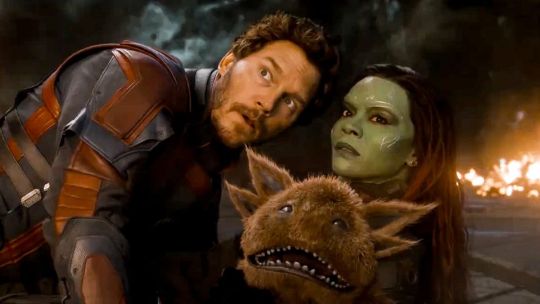

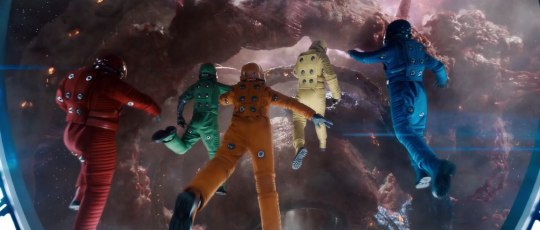
Hier ist unsere REVIEW zum neuen Marvel-Hit!
2 notes
·
View notes
Text
Såg Doctor Strange in the Multiverse of Madness med mina syskon i måndags. Det absolut mest vrickade jag någonsin sett på film. Att jag inte hade sett någon av de typ 22 Marvelfilmer man behöver ha sett för att få något som helst sammanhang gjorde de dryga två timmarna till en psykosliknande upplevelse.
(Johanna Wiman, Chefredaktör för Tidningen Skriva)
#Min känsla varje gång jag ser Marvel-vinjetten före en film.#citat#marvel#film#mcu#marvel cinematic universe#Johanna Wiman
10 notes
·
View notes
Text




American Chavez from Marvel Legends
This is the version of the character played by Xochitl Gomez in ‘Doctor Strange and Multiverse of Madness.’ This figure has been coming down in price and is actually worth picking up. The jacket has a lot of little details that they didn’t have to put in, but did and the joints lend the figure to lots of good fight poses.
#americanchavez#marvellegends#hasbro#hasbrotoys#marvel#comicbookactionfigures#marvelsuperheroes#womansuperhero#marvelfilms#doctorstrange#doctorstrangeandthemultiverse ofmadness#xochitlgomez#toyphotography#actionfigure#actionfigurephotos#actionfigurephotography#actionfigurephotographer#toyphoto#toypic#toyphotographer#actionfigures#toys#toycollector#toycommunity#actionfigurecommunity#toyinstagram#actionfiguresdisplay#articulatedalliance
0 notes
Text

Schatzkammer und Zeughaus
In der Geschichte und Theorie des Museums kann man Sammlungstypen unterscheiden. Meine These lautet, dass es unter anderem zwei Linien gibt: Museen in der Tradition der Schatzkammer und Museen in der Tradition des Zeughauses. Es gibt also Museen, in denen Schätze gesammelt werden und es gibt Museen, in denen Waffen gesammelt werden. Von diesem Unterschied lebt zum Beispiel eine Szene in dem Marvelfilm Black Panther. Da ist etwas erst Schatz, dann plötzlich Waffe.
Fast ein ganzer Film, nämlich Bacurau von Kleber Mendonça Filho und Juliano Dornelles lebt von dieser Unterscheidung. Insoweit können auch Bilder entweder als Schätze oder als Waffen auftauchen, man kann natürlch auch was wechseln und verwechseln, wandeln und verwandeln. In dem Film Bacurau markiert das einen Scheitelpunkt im Film: Die Leute um Udo Kier, die nicht aus dem Sertão kommen, glauben, die Objekte im Museum von Bacurau seien Schätze und wissen nicht, dass es Waffen sind, so gehen sie erstens bei ihrer Recherche nicht ins Museum und zweitens alle drauf. Das ist natürlich nur eine Szene, eine wichtige Szene von mehreren wichtigen Szenen. Aber der Film wird bei seinen Vorführungen zur Wucht. In Brasilien, in Recife, lief der Film 2019.De Schlangen vor dem Kino brauchten sehr lange, bis sie ein nur ein bisschen kürzer wurden. Dieser Film entlädt sich an einem bestimmten Punkt mit wuchtiger Katharis, und wenn man im Kinosaal während des Films die Leute aufspringen und jubeln sieht, dann steht auch die Frage im Saal, ob dieser Film selbst Schatz oder Waffe ist.
Man erkennt den Unterschied zwischen Schatzkammern und Zeughäusern erst und nur im Protokoll, also zum Beispiel in den Gesten und Gebärden, mit denen die Leute sich im Museum vor den Bildern bewegen. An den Gegenständen, den Namen der Museen, ihren Sammlungsgebieten oder ihrer Architektur und Inneneinrichtung erkennt man das nicht.
Da gibt es Faustregeln, die man mit Formeln, von mir aus sogar Pathosformeln beschreiben kann. Stehen die Leute besonnen und still vor einem Bild und sieht man dann, wie es in ihnen prickelt und sie andächtig und stumm eintauchen ins Bild, dann ist es eine Schatzkammer. Das kann man mit Nelson Goodman die Prickel-und-Tauch-Formel nennen. Fangen die Leute an, vor dem Bild schon so zu gestikulieren, wie man das auch vor Gericht oder von Höfen, Foren oder Innenhöfen, vielleicht sogar Kasernenhöfen sieht, setzen also schon die ersten Ermahnungs- und Ratschlagsgesten oder gar schon die adlocutio, die berühmte Feldherrengeste ein, macht jemand im Museum nur mit zwei Beinen schon eine Levade, dann liegt es nahe, dass man in einem Zeughaus gelandet ist. Dann ist Vorsicht geboten. Macht jemand einen Anschlag auf ein Bild, zum Beispiel mit Säure oder einem Messer, dann ist alles klar, dann gibt es keinen Zweifel mehr, allenfalls den, ob das nicht ein Rückschlag war.
Noch so eine These: russische Museen sind eher Zeughäuser und weil die Brasilianer die Russen Südamerika sind, sind auch brasilianische Museen (Bacurau!) Zeughäuser.
#Geschichte und Theorie des Museums#Schatzkammer und Zeughaus#Protokoll#Vor dem Bild#kunst und krieg#Eremitage#St. Petersburg
3 notes
·
View notes
Text
Stell dir vor du wohnst in einem Mehrparteienhaus, in dem vielleicht klar sein könnte, dass die Wohnungen nicht hundert prozentig soundproof sind. Aber du besorgst dir halt eine vollumfassende Soundanlage und guckst so deine tollen Marvelfilme. Während du so in deinem Wohnzimmer mit Kinosound vor dich hinvegetierst verlierst du keinen einzigen Gedanken daran, dass die Tatsache, dass du gerade Kinosound hast, eventuell vielleicht auch Auswirkungen auf Leute haben könnte, die unter und neben dir wohnen. Ne, das kann nicht sein. Und auch wenn, mir doch egal. Ich hab hier mein Heimkino.
1 note
·
View note
Text
Oscarstippning 2023
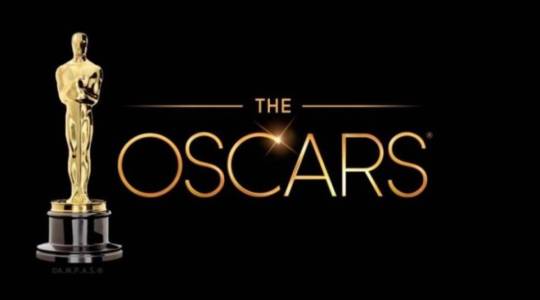
På natten till måndag är dags. Och efter ett par år av existentiell kris är Oscarsgalan tillbaka på riktigt igen. Jimmy Kimmel står för värdskapet och »Everything Everywhere All at Once« för favoritskapet. Men historien visar att inga segrar bör tas ut i förskott. I vanlig ordning har jag tippat samtliga kategorier – vinnare i fetstil.
Best Picture
All Quiet on the Western Front
Avatar: The Way of Water
The Banshees of Inisherin
Elvis
Everything Everywhere All at Once
The Fabelmans
Tár
Top Gun: Maverick
Triangle of Sadness
Women Talking
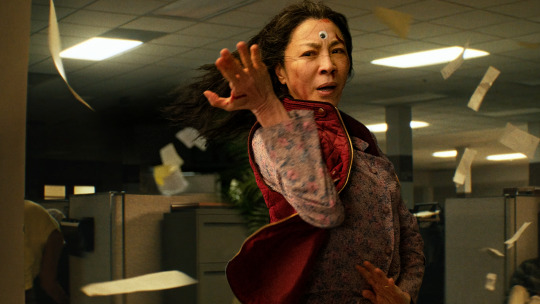
Ett blandat fält av småskaliga kritikerfavoriter, gigantiska blockbusters och icke-engelskspråkiga filmer, däribland Ruben Östlunds »Triangle of Sadness«. Initialt var Steven Spielbergs delvis självbiografiska »The Fabelmans« (totalt 7 nomineringar) den främsta förhandsfavoriten. Men filmen har varken omhuldats av kritiker eller publik – adjektiven har sällan nått högre än »bra« – och efter sin Golden Globe-vinst har filmens momentum svalnat. Sedan har vi »Top Gun: Maverick« (totalt 6 nomineringar), filmen som enligt vissa (bland annat Spielberg) har räddat hela Hollywood och biografindustrin som sådan. En bedrift som är lovvärd men räcker det för en Oscar i den finaste kategorin? Troligtvis inte, då den saknar nomineringar i både skådespelarkategorier och regikategorin, men det kan inte helt uteslutas. Martin McDonaghs underbara »The Banshees of Inisherin« (totalt 9 nomineringar) och tyska Netflix-filmen tillika BAFTA-vinnaren »All Quiet on the Western Front« (totalt 9 nomineringar) är andra potentiella skrällar.
Men årets storfavorit är »Everything Everywhere All at Once«. Som en fullständigt bisarr genreöverskridande metaverse-actionkomedi (i mitt tycke inte mycket mer än en Marvelfilm i creddig förklädnad), producerad av indie-produktionsbolaget A24, och med en nästan rakt igenom asiatisk ensemble, är filmen knappast den gamla skolans typiska Oscarsfavorit. Men det råder ingen tvekan kring filmens popularitet i Hollywood, då den har vunnit samtliga tunga branschpriser – SAG, PGA, DGA och WGA—en bedrift som endast har inträffat fyra gånger tidigare (»American Beauty«, »No Country for Old Men«, »Slumdog Millionaire« och »Argo«). Vid samtliga fyra tillfällen vann dessa filmer även Bästa film på Oscarsgalan.
Allt annat än en vinst för »Everything Everywhere All at Once« vore med andra ord en stor skräll. Å andra sidan har de senaste åren bjudit på flera oväntade vändningar i just Bästa film-kategorin. Främsta utmanaren i år tror jag är »All Quiet on the Western Front«, som i sin brutala skildring av skyttegravskrig är olustigt angelägen. Och kanske är det slutligen dags för Netflix?
Best Actress in a Leading Role
Cate Blanchett – Tár
Ana de Armas – Blonde
Andrea Riseborough – To Leslie
Michelle Williams – The Fabelmans
Michelle Yeoh – Everything Everywhere All at Once
En stenhård duell mellan Cate Blanchett och Michelle Yeoh. En av Hollywood mest älskade skådespelerskor i en av sina mest hyllade rollprestationer i karriären mot uppstickaren med starkast momentum i galans mest älskade film. Critics Choice and BAFTA gick till Blanchett, SAG och Indie Spirits till Yeoh. En vinst till den senare vore den första någonsin i kategorin för en asiatisk skådespelerska. Blanchett har vunnit två gånger tidigare, och vore blott den åttonde skådespelare någonsin att vinna tre statyetter.
Best Actor in a Leading Role
Austin Butler – Elvis
Colin Farrell – The Banshees of Inisherin
Brendan Fraser – The Whale
Paul Mescal – Aftersun
Bill Nighy – Living
Även detta ett osannolikt jämnt race. Förvandlingen av Brendan Fraser i hans storartade comeback är spektakulär. Frågan är om filmen i sig är tillräckligt tillgänglig och uppskattad. Austin Butlers står för ett desto mer publikfriande porträtt som kungen av rock'n'roll, i en film som varit tillgänglig för streaming på HBO Max i flera månader och som är nominerad i den största kategorin. Även Colin Farrell får anses vara med i diskussionerna med sin i mitt tycke starkaste rollprestation någonsin. Historiskt sett har akademin dock premierat transformativa rollgestaltningar.

Best Actor in a Supporting Role
Brendan Gleeson – The Banshees of Inisherin
Brian Tyree Henry – Causeway
Judd Hirsch – The Fabelmans
Barry Keoghan – The Banshees of Inisherin
Ke Huy Quan – Everything Everywhere All at Once
Den enda skådespelarkategorin där det på förhand finns en tydlig favorit. Barry Keoghan är främsta utmanare med sin vinst på BAFTA för sitt lika ömsinta som övertygande porträtt av den ensamma och olyckligt kära irländska pojken. En missad vinst för Quan här skulle höja spänningen rejält inför de avslutande priserna.
Best Actress in a Supporting Role
Angela Bassett – Black Panther: Wakanda Forever
Hong Chau – The Whale
Kerry Condon – The Banshees of Inisherin
Jamie Lee Curtis – Everything Everywhere All at Once
Stephanie Hsu – Everything Everywhere All at Once

Angela Bassett är den första skådespelaren som någonsin Oscarsnominerats för en Marvel-film. Och hon har realistiska chanser att gå hela vägen. Jag tror och hoppas dock att Jamie Lee Curtis (hennes första nominering trots lång och framgångsrik karriär) eller Kerry Condon – som båda står för betydligt mer minnesvärda insatser – kammar hem det.
Best Director
Martin McDonagh – The Banshees of Inisherin
Daniel Kwan, Daniel Scheinert – Everything Everywhere All at Once
Steven Spielberg – The Fabelmans
Todd Field – Tár
Ruben Östlund – Triangle of Sadness
Det är inte ovanligt att två olika filmer belönas i Bästa regi och Bästa film – under de senaste tio åren har detta inträffat mer än hälften av gångerna. Och kanske är skrällchanserna något högre här än i Bästa film. Edward Berger (»All Quiet on the Western Front«) vann överraskande BAFTA men är inte ens nominerad här. Spielberg har inte vunnit någon Oscar sedan »Saving Private Ryan« 1998. Kanske ser akademin detta som ett tillfället att belöna honom för sin mest personliga film hittills. Varken Martin McDonagh eller Todd Field kan nog helt uteslutas heller, men det är bröderna Daniels statyett att förlora.
Best Writing (Original Screenplay)
Martin McDonagh – The Banshees of Inisherin
Daniel Kwan, Daniel Scheinert – Everything Everywhere All At Once
Steven Spielberg, Tony Kushner – The Fabelmans
Todd Field – Tár
Ruben Östlund – Triangle of Sadness

Uppmuntrande nog är flera av årets mest prisade filmer originalmanus. Med det sagt tycker jag att manuset till »Everything Everywhere All At Once« är överskattat. Att man förklarar att slumpmässighet och knaserier tillhör spelreglerna gör det inte per automatik bra. Samma tendens finns i (vissa) metafilmer som tror att de »kommer undan« bara för att de medvetet kommenterar klichéerna som de sedan trampar i. När detta görs utan finess framstår det mest som en ursäkt för att skriva starka scener. Jag tippar istället med hjärtat – tonsäkerheten och humorn i »The Banshees of Inisherin« är oöverträffad i år. Om Ruben ska skrälla så är det här?
Best Writing (Adapted Screenplay)
Edward Berger, Ian Stokell, Lesley Paterson – All Quiet on the Western Front
Rian Johnson –Glass Onion: A Knives Out Mystery
Kazuo Ishiguro – Living
Ehren Kruger, Eric Warren Singer, Christopher McQuarrie – Top Gun: Maverick
Sarah Polley – Women Talking
De två uppföljarna och Nobelprisvinnaren får anses borträknade. Då återstår adaptionen av klassiska »All Quiet on the Western Front« och Sarah Polleys hyllade manus baserat på den väsentligt nyare romanen av Miriam Toews. Den förra filmen har betydligt mer luft under vingarna, men manuskategorierna belönar ofta mindre filmer. Och »All Quiet on the Western Front« är framför allt en audiovisuellt imponerande bedrift. Och kan den kontroversiella omskrivningen av förlagans slut ligga den i fatet?
Best International Feature Film
All Quiet on the Western Front
Argentina 1985
Close
EO
The Quiet Girl
Best Animated Feature Film
Guillermo del Toro’s Pinocchio
Marcel the Shell with Shoes On
Puss in Boots: The Last Wish
The Sea Beast
Turning Red

Best Documentary Feature
All That Breathes
All the Beauty and the Bloodshed
Fire of Love
A House Made of Splinters
Navalny
Best Film Editing
The Banshess of Inisherin
Elvis
Everything Everywhere All at Once
Tár
Top Gun: Maverick
Best Cinematography
All Quiet on the Western Front
Bardo, False Chronicle of a Handful of Truths
Elvis
Empire of Light
Tár

Best Music (Original Score)
All Quiet on the Western Front – Volker Bertelmann
Babylon – Justin Hurwitz
The Banshees of Inisherin – Carter Burwell
Everything Everywhere All at Once – Son Lux
The Fabelmans – John Williams
Best Music (Original Song)
“Applause” – Tell It Like a Woman
“Hold My Hand” – Top Gun: Maverick
“Lift Me Up” –Black Panther: Wakanda Forever
“Naatu Naatu” – RRR
“This Is a Life” – Everything Everywhere All at Once
Best Sound
All Quiet on the Western Front
Avatar: The Way of Water
The Batman
Elvis
Top Gun: Maverick

Best Visual Effects
All Quiet On the Western Front
Avatar: The Way of Water
The Batman
Black Panther: Wakanda Forever
Top Gun: Maverick
Best Production Design
All Quiet On the Western Front
Avatar: The Way of Water
Babylon
Elvis
The Fabelmans
Best Costume Design
Babylon
Black Panther: Wakanda Forever
Elvis
Everything Everywhere All at Once
Mrs Harris Goes to Paris
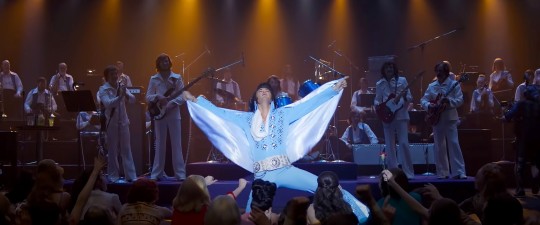
Best Makeup and Hairstyling
All Quiet On the Western Front
The Batman
Black Panther: Wakanda Forever
Elvis
The Whale
Best Animated Short Film
The Boy, the Mole, the Fox and the Horse
The Flying Sailor
Ice Merchants
My Year of Dicks
An Ostrich Told Me the World is Fake and I Think I Believe It
Best Live Action Short Film
An Irish Goodbye
Ivalu
Le Pupille
Night Ride
The Red Suitcase
Documentary Short Subject
The Elephant Whisperers
Haulout
How Do You Measure a Year?
The Martha Mitchell Effect
Stranger at the Gate
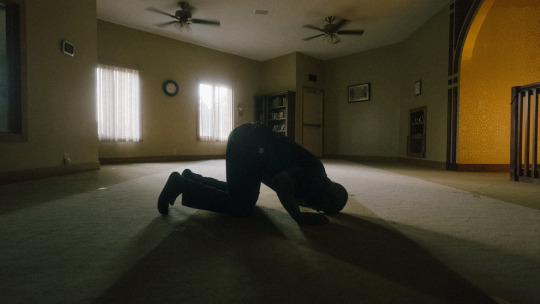
Sändningstider Oscarsgalan 2023 på TV4 och TV4 Play:
21:30 - 23:00 Förgala till Oscarsgalan (TV4 Play-exklusivt)
23:00 - 01:00 Oscarsgalan - röda mattan (00:00 startar sändningen i TV4)
01:00 - 04:30 Galan i TV4, C More och TV4 Play
0 notes
Text
Marvel Filmleri ve Dizilerinin İzlenme Sıralaması 2023
Marvel Filmleri ve Dizilerinin İzlenme Sıralaması 2023
#marvel #dc #marvel #marvelcomics #marvelstudios #marveluniverse #marveledits #marvelous #marvelmovies #marvelstud10s #dizi #film #dizipal #dizipalguncel #filmizle #diziizle #marveldizi #marvelfilm
Çıkış Tarihine Göre Marvel Filmleri 2023
Iron Man (2008)
The Incredible Hulk (2008)
Iron Man 2 (2010)
Thor (2011)
İlk Yenilmez: Kaptan Amerika (Captain America: The First Avenger) (2011)
Yenilmezler (The Avengers) (2012)
Iron Man 3 (2013)
Thor: Karanlık Dünya (Thor: The Dark World) (2013)
Captain America: The Winter Soldier (2014)
Galaksinin Koruyucuları (Guardians of the Galaxy)…

View On WordPress
0 notes